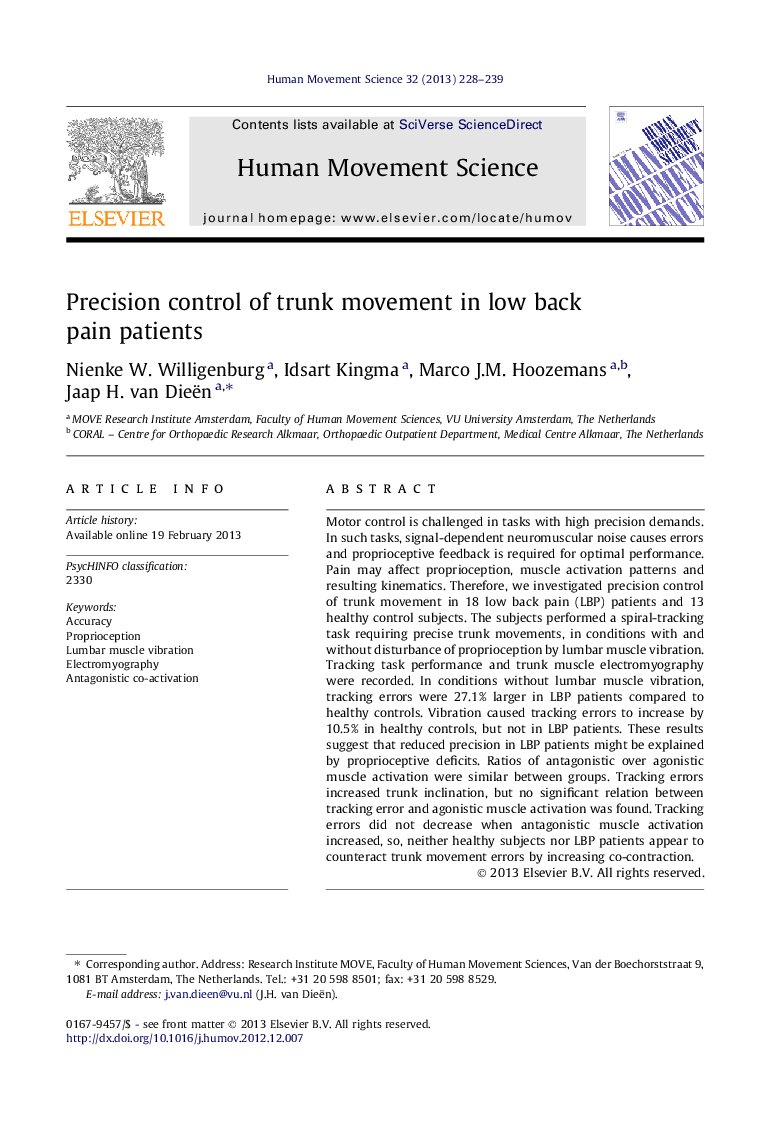| Article ID | Journal | Published Year | Pages | File Type |
|---|---|---|---|---|
| 10459179 | Human Movement Science | 2013 | 12 Pages |
Abstract
Motor control is challenged in tasks with high precision demands. In such tasks, signal-dependent neuromuscular noise causes errors and proprioceptive feedback is required for optimal performance. Pain may affect proprioception, muscle activation patterns and resulting kinematics. Therefore, we investigated precision control of trunk movement in 18 low back pain (LBP) patients and 13 healthy control subjects. The subjects performed a spiral-tracking task requiring precise trunk movements, in conditions with and without disturbance of proprioception by lumbar muscle vibration. Tracking task performance and trunk muscle electromyography were recorded. In conditions without lumbar muscle vibration, tracking errors were 27.1% larger in LBP patients compared to healthy controls. Vibration caused tracking errors to increase by 10.5% in healthy controls, but not in LBP patients. These results suggest that reduced precision in LBP patients might be explained by proprioceptive deficits. Ratios of antagonistic over agonistic muscle activation were similar between groups. Tracking errors increased trunk inclination, but no significant relation between tracking error and agonistic muscle activation was found. Tracking errors did not decrease when antagonistic muscle activation increased, so, neither healthy subjects nor LBP patients appear to counteract trunk movement errors by increasing co-contraction.
Related Topics
Life Sciences
Neuroscience
Cognitive Neuroscience
Authors
Nienke W. Willigenburg, Idsart Kingma, Marco J.M. Hoozemans, Jaap H. van Dieën,
